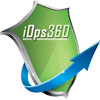Employee Actions
The Employee Actions feature allows you to track events with a specific employee. These can include Late, No Call-No Shows, Cancelled By The User, Kudos, Teamwork, and any other actions you want to trend and track over time. Employee Actions is also great to trend employees that go above and beyond for evaluation time.
Configuration
You can create and customize the Employee Action Types (i.e. “Late < 15 Minutes” or “Cancelled By Admin”). Select “System Configuration” from the Features Menu. Click the “Users” tab and select “Employee Action Types“.
Note: When an Action Type is deleted, all user items remain saved but are hidden.

Security
Employee Actions are automatically restricted to Supervisor level access and higher. For users with ONLY Supervisor access, they will have access to only their direct-report-users. User Administrator, Super-User, and SysOp will always have access to all Employee Actions.
Creating A User Action
To create an Employee Action, select “Employee Actions” from the “Features” menu. All users that you have access to will be shown in the tree on the left. Click on the user’s name to load the details in the left window.

Click “Create Action” on the User Details or select the “Create Employee Action” tab in the accordion view.

Viewing Employee Actions

To view an Employee Action, select “Employee Actions” from the “Features” menu. All users that you have access to will be shown in the tree on the left. Click on the user’s name to load the details in the left window. The Employee tab in the accordion shows each Employee Action and the number of actions grouped.
To review each action and/or make changes, click the “Action History” tab in the accordion.

Editing Employee Actions
To edit an Employee Action, select “Employee Actions” from the “Features” menu. All users that you have access to will be shown in the tree on the left. Click on the user’s name to load the details in the left window. Click the “Action History” tab in the accordion. Use the filters to locate the Employee Action and click on the Action. Once all changes are completed, click “Update Employee Action”

Why Not Automate This Process?
We considered automating this process but we realized that with scheduling, things change quickly. Let’s say an employee had a long shift and had to stay late with charting. The admin might casually say to come in an hour late tomorrow and due to the long shift, iOps Scheduler is not updated in this case. If this process were automated, this would generate an Employee Action. So we have chosen to keep the Employee Actions separate so you can document the Employee Actions and also include notes.
Other Related Resources:
